Speaker Bios and Presentation Descriptions
- Welcome Address
- Ethical Issues in Translating Indigenous Languages
- Translation and Interpretation: Ensuring Cultural and Linguistic Access (Part 1) Indigenous languages and cultural access
- Translation and Interpretation: Ensuring Cultural and Linguistic Access (Part 2) Training, regulation, and education for linguistic access
- Keynote: Meta/UNESCO partnership announcement for project “No Language Left Behind”
- Closing Address
Welcome Address
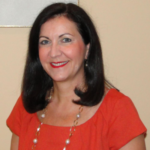
Ms. Jeannette Stewart is a strategic leader and has worked with mainstream brands helping them achieve global growth, business revitalization and transformation. Currently she is leading international launches for Nest cameras at Google. She founded Translation Commons, an online volunteer-based public charity aiming to offer and share tools and resources and to facilitate community initiatives. The Language Digitization Initiative creates resources specifically for Indigenous communities to enable their languages online. She is the former CEO of CommuniCare, a life-science translation company with offices in London, Paris, Athens, Budapest and Los Angeles. Jeannette has been involved in high-profile projects such as the Genome Project and prototyping the online Unified Submission Process for the European Medicine Agency. Jeannette has founded, served on the board of directors, moderated, and volunteered in various educational and health charities.
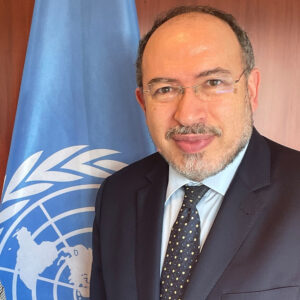 Assistant Director-General for Communication and Information at UNESCO since 2021,
Assistant Director-General for Communication and Information at UNESCO since 2021,
Dr. Tawfik Jelassi is responsible for UNESCO’s programs on fostering freedom of expression, leading digital transformation, strategizing the role of ICT in education, and building inclusive knowledge societies. He holds a Ph.D. doctorate in Management Information Systems from New York University and postgraduate diplomas from the University of Paris Dauphine. Former Minister of Higher Education, Scientific Research, and Information & Communication Technologies in Tunisia as well as Dean and Professor, he has extensive international experience in higher education, scientific research, and digital technologies.
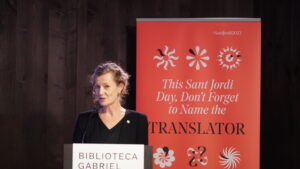 Dr. Alison is President of the Fédération Internationale des Traducteurs (FIT). A linguist and translator in legal/human rights and technical fields, she has diverse experience in strategy, policy and promotion of the arts. She is known for her strong advocacy of multilingualism, multilateralism, and cultural and linguistic diversity, particularly indigenous language revitalisation. She also has an interest in the ethics of AI, and in promoting International Translation Day, each 30 September, as the premier day to celebrate the work of translators, interpreters and terminologists around the world.
Dr. Alison is President of the Fédération Internationale des Traducteurs (FIT). A linguist and translator in legal/human rights and technical fields, she has diverse experience in strategy, policy and promotion of the arts. She is known for her strong advocacy of multilingualism, multilateralism, and cultural and linguistic diversity, particularly indigenous language revitalisation. She also has an interest in the ethics of AI, and in promoting International Translation Day, each 30 September, as the premier day to celebrate the work of translators, interpreters and terminologists around the world.
Ethical Issues in Translating Indigenous Languages
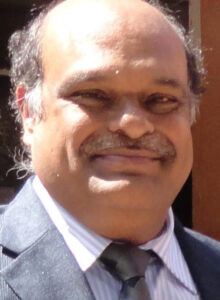
Dr. Rao was awarded Honorius Causa from Krasnoder State University, Russia and also Honorary Professor Medal from Kazan State University, Russia. His research areas of interest include Linguistics, Translation Studies, Foreign Language teaching, Digital Learning and Higher Education in India with special focus on Internationalization of Higher Education. He has more than 60 International and National Publications and edited ten books (eight International and two National). Dr. Rao is member of many International and National Committees and Editorial Boards of academic journals.
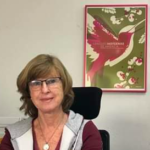 Dr. Elin Emilsson has been working in the fields of applied linguistics and discourse analysis and has developed language courses in and for indigenous communities of Mexico. Her colleague Nelson Martinez is a native speaker of the Zapotec language and an applied linguist working at the National Institute of Indigenous Languages. He has translated works in Spanish into Zapotec and vice-versa.
Dr. Elin Emilsson has been working in the fields of applied linguistics and discourse analysis and has developed language courses in and for indigenous communities of Mexico. Her colleague Nelson Martinez is a native speaker of the Zapotec language and an applied linguist working at the National Institute of Indigenous Languages. He has translated works in Spanish into Zapotec and vice-versa.
Dr. Nelson is a Basic Research coordinator. Researcher at National Institute of Indigenous Languages. Master in Applied Linguistics concentrated on Zapotec writing; 10 years working for the National Institute of Indigenous Languages. Has published translations of Zapotec texts into Spanish, and vice versa.
As a linguist and lover of linguistic diversity, Dr. Marie-Odile Junker (Carleton University, Canada) is active in Indigenous language documentation, maintenance, and revitalisation. She uses a participatory-action research framework to work with communities and individuals interested in maintaining their language and seeing it thrive in the 21st century. Exploring how information and communication technologies can help Indigenous languages, she has developed several websites and co-edited online dictionaries for languages of the Algonquian family (Cree, Innu, Atikamekw). She is leading the co-creation of the Algonquian Linguistic Atlas: www.atlas-ling.ca, a large collaborative project that is building a digital infrastructure for Algonquian dictionaries and other resources (www.algonquianlanguages.ca). Marie-Odile was awarded a (2017) Governor’s General Innovation Award.
Kawiti Waetford is a certified translator and interpreter for the Māori Language Commission, hailing from Aotearoa New Zealand. A native speaker of te reo Māori, Kawiti was raised in a full immersion Māori education system and has since become a respected cultural advisor across multiple sectors, including media, film and television, local and national government, technology, transport, the arts and music, health, community NGOs, and publishing. In addition to his translation work, Kawiti is a skilled voice-over artist and trained internationally as an opera singer. His diverse clientele includes the Ministry of Justice, the Northland Regional Council, KIWA Digital, Warner Brothers, New Zealand Opera, and Scholastic.
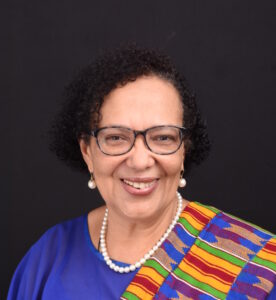 Ms Dorothy Gordon is a global leader in the field of technology and development with a focus on digital transformation. As a feminist she works to bring about greater understanding, engagement, and action regarding the impact of technology on society. She is Chair of the Inter-Governmental Council of the UNESCO Information For All Programme and a Board member of the UNESCO Institute for Information Technologies in Education. She works in the field of digital transformation with a focus on purpose-driven innovation and improved policy design and outcomes. Leveraging her extensive managerial experience with the United Nations and the public sector in Africa and Asia, she serves as an advisor and consultant to diverse stakeholders including civil society organizations and the private sector. This includes her work with the Global Partnership for Artificial Intelligence, the World Summit Awards, Linux Professional Institute, and Chatham House. Her current interests include gender and technology, digital and information literacy in indigenous languages, technology in education, and language technologies and artificial intelligence. She is a regular speaker on the impact of technology on society, an advocate of the Open Movement, Creative Commons, and UNESCO’s ROAM Principles.
Ms Dorothy Gordon is a global leader in the field of technology and development with a focus on digital transformation. As a feminist she works to bring about greater understanding, engagement, and action regarding the impact of technology on society. She is Chair of the Inter-Governmental Council of the UNESCO Information For All Programme and a Board member of the UNESCO Institute for Information Technologies in Education. She works in the field of digital transformation with a focus on purpose-driven innovation and improved policy design and outcomes. Leveraging her extensive managerial experience with the United Nations and the public sector in Africa and Asia, she serves as an advisor and consultant to diverse stakeholders including civil society organizations and the private sector. This includes her work with the Global Partnership for Artificial Intelligence, the World Summit Awards, Linux Professional Institute, and Chatham House. Her current interests include gender and technology, digital and information literacy in indigenous languages, technology in education, and language technologies and artificial intelligence. She is a regular speaker on the impact of technology on society, an advocate of the Open Movement, Creative Commons, and UNESCO’s ROAM Principles.
Translation and Interpretation: Ensuring Cultural and Linguistic Access (Part 1) Indigenous languages and cultural access
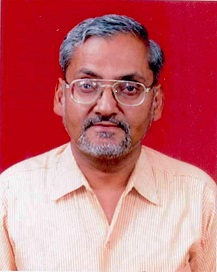
Dr. R.Siva Prasad is a retired professor of Anthropology and formerly Honorary Professor in the Center for Digital Learning, Training and Resources (CDLTR), University of Hyderabad. He has both teaching and research experience of more than 40 years, during which he guided research students in diverse areas. He is actively associated with UNESCO-IFAP programmes. He is a member of the Information Ethics Working Group (IEWG) of UNESCO-Information for All Programme (IFAP). His current areas of interest are AI ethics, different aspects of marginal and indigenous communities, including indigenous knowledge systems, languages, education, and conflict management.
R oy Boney, Jr. is a Cherokee Nation citizen, artist, and language revitalization advocate. He worked for the Cherokee Nation for over sixteen years as a language technologist, multimedia producer, and program manager. He now works as a Cherokee Language Film and Media Producer for Cherokee Film as part of Cherokee Nation Businesses.
oy Boney, Jr. is a Cherokee Nation citizen, artist, and language revitalization advocate. He worked for the Cherokee Nation for over sixteen years as a language technologist, multimedia producer, and program manager. He now works as a Cherokee Language Film and Media Producer for Cherokee Film as part of Cherokee Nation Businesses.
Samar Sinha teaches linguistics in the Department of Nepali, Sikkim University. He is interested in features (the atomic elements of linguistic structures) and their relation to architecture and modality in syntactic theory, primarily driven by the data from signed languages, Nepali language varieties and endangered languages. He collaborates with speakers of endangered languages of the Himalayas to document and describe their languages, institutions and foodways, and with writers on translation. In addition to teaching and research, he leads the Centre for Endangered Languages at Sikkim University, which researches the endangered languages of North Bengal and Sikkim.
Mr Dev Kumar Sunuwar is a chairperson of Indigenous Television, Nepal’s, indeed Asia’s, first and only multi-lingual Indigenous Community Television, which was one of the official media partners of the International Year of Indigenous Languages in 2019. He has written extensively on international human rights and issues concerning indigenous peoples in various media and journals. For a decade, he was also extensively engaged with UN Human Rights mechanisms and systems for bringing their attention to the concerns of indigenous peoples.
Blessing and presentation of the Sunuwar digitization efforts
Development of different technologies for the preservation and promotion of Indigenous languages.
His presentation will focus on the use of different social media, modern media, and technologies for the preservation and promotion of Indigenous languages, particularly the Sunuwar languages of Nepal.
Pr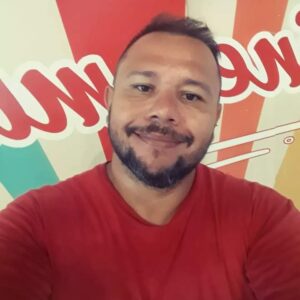 ofessor Anthropology Faculty Museu Nacional Brasil. Member of Indigenous Language Comitee of Brazilian Association of Linguistics
ofessor Anthropology Faculty Museu Nacional Brasil. Member of Indigenous Language Comitee of Brazilian Association of Linguistics
Professor Dr. Altaci Corrêa Rubim has a degree in Higher Ed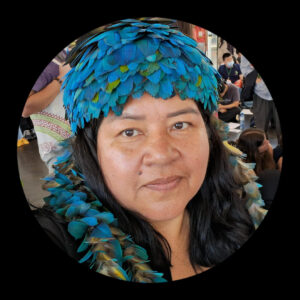 ucation from the State University of Amazonas, (2005) and Pedagogy from the Leonardo Da Vinci University (2009), a master’s degree in Society and Culture in the Amazon-PPGSA/UFAM, (2011), a PhD in Linguistics from the Postgraduate Program in Linguistics at the University of Brasília, (2016) and a master’s student in the Professional Master’s Degree in Linguistics and Indigenous Languages PROFLLIND/UFRJ (2020). She is a professor and researcher at the Department of Linguistics, Portuguese and Classical Languages (LIP) at the Institute of Letters (IL) at UnB and professor/researcher at the New Social Cartography Project of the Amazon-PNCSA/UEA. Advises master’s degrees, scientific initiation and course completion work. He is co-president of the Global GT for the Decade of Indigenous Languages organized by UNESCO (2024-2026). He has experience in the area of Education, with an emphasis on Theories of Instruction and the area of Anthropology. It works on the following themes: mapping indigenous languages, ethnic identity, Language Policy and, mainly, developing teaching material in indigenous languages. She was the General Coordinator of Articulation of Indigenous Educational Policies at the Ministry of Indigenous Peoples-MPI (04-2023 to 09-2024). She is currently Coordinator of Language Policy Promotion at MPI. He was head of the Indigenous School Education Management at SEMED/Manaus (2017-2018). He has published articles in Brazil and abroad.
ucation from the State University of Amazonas, (2005) and Pedagogy from the Leonardo Da Vinci University (2009), a master’s degree in Society and Culture in the Amazon-PPGSA/UFAM, (2011), a PhD in Linguistics from the Postgraduate Program in Linguistics at the University of Brasília, (2016) and a master’s student in the Professional Master’s Degree in Linguistics and Indigenous Languages PROFLLIND/UFRJ (2020). She is a professor and researcher at the Department of Linguistics, Portuguese and Classical Languages (LIP) at the Institute of Letters (IL) at UnB and professor/researcher at the New Social Cartography Project of the Amazon-PNCSA/UEA. Advises master’s degrees, scientific initiation and course completion work. He is co-president of the Global GT for the Decade of Indigenous Languages organized by UNESCO (2024-2026). He has experience in the area of Education, with an emphasis on Theories of Instruction and the area of Anthropology. It works on the following themes: mapping indigenous languages, ethnic identity, Language Policy and, mainly, developing teaching material in indigenous languages. She was the General Coordinator of Articulation of Indigenous Educational Policies at the Ministry of Indigenous Peoples-MPI (04-2023 to 09-2024). She is currently Coordinator of Language Policy Promotion at MPI. He was head of the Indigenous School Education Management at SEMED/Manaus (2017-2018). He has published articles in Brazil and abroad.
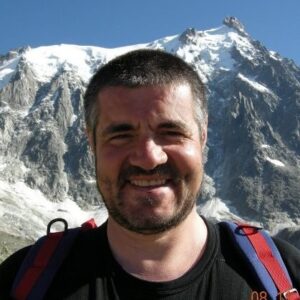 Serge Gladkoff graduated with Honors from an Ivy League college, majoring in nuclear science. With over 28 years in the localization industry, he has served as a localization manager and co-founded Logrus Global, a language service and technology firm. Serge leads the company’s AI Lab which released hLEPOR automatic metrics on www.pypi.org, the Paralela AI-based aligner product, Catmint CAT tool, and Perfectionist LQA service. Logrus Global AI Lab ecured a secondplace in the Biomedical WMT 2022 ClinSpEn MT training challenge. Serge has also co-authored multiple research papers on LQA/TQE and AI/ML/MT. Serge is the member of ASTM MQM 2.0 research group, a member of MQM Council, has served three times on the GALA Board, and is the US ANSI expert for ISO.
Serge Gladkoff graduated with Honors from an Ivy League college, majoring in nuclear science. With over 28 years in the localization industry, he has served as a localization manager and co-founded Logrus Global, a language service and technology firm. Serge leads the company’s AI Lab which released hLEPOR automatic metrics on www.pypi.org, the Paralela AI-based aligner product, Catmint CAT tool, and Perfectionist LQA service. Logrus Global AI Lab ecured a secondplace in the Biomedical WMT 2022 ClinSpEn MT training challenge. Serge has also co-authored multiple research papers on LQA/TQE and AI/ML/MT. Serge is the member of ASTM MQM 2.0 research group, a member of MQM Council, has served three times on the GALA Board, and is the US ANSI expert for ISO.
Translation and Interpretation: Ensuring Cultural and Linguistic Access (Part 2) Training, regulation, and education for linguistic access
Dr. Hanem El-Farahaty is an Associate Professor of Arabic L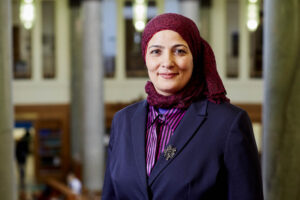 anguage, Translation, and Interpreting at the University of Leeds, where she also serves as the Deputy Director of Postgraduate Research for the School of Languages, Cultures, and Societies. She is a Senior Fellow of the Higher Education Academy and a Fellow of the Chartered Institute of Linguists. Dr. El-Farahaty is a linguist, translator, and interpreter with expertise in Arabic-English legal translation and comparative corpus linguistics. Her research and teaching focus on legal translation, translation for international organizations, human rights, and inclusive legal language. Dr. El-Farahaty is the author of Arabic-English-Arabic Legal Translation (2015) and co-editor of the Routledge Handbook of Arabic Translation (2019). Her book on legal translation was translated into Arabic by King Abdulaziz University in Saudi Arabia (2018) and is widely used in universities across the Arab world. She also serves as a reviewer for several international publishers, including Routledge, Cambridge University Press, and Edinburgh University Press. Since 2017, Dr. El-Farahaty
anguage, Translation, and Interpreting at the University of Leeds, where she also serves as the Deputy Director of Postgraduate Research for the School of Languages, Cultures, and Societies. She is a Senior Fellow of the Higher Education Academy and a Fellow of the Chartered Institute of Linguists. Dr. El-Farahaty is a linguist, translator, and interpreter with expertise in Arabic-English legal translation and comparative corpus linguistics. Her research and teaching focus on legal translation, translation for international organizations, human rights, and inclusive legal language. Dr. El-Farahaty is the author of Arabic-English-Arabic Legal Translation (2015) and co-editor of the Routledge Handbook of Arabic Translation (2019). Her book on legal translation was translated into Arabic by King Abdulaziz University in Saudi Arabia (2018) and is widely used in universities across the Arab world. She also serves as a reviewer for several international publishers, including Routledge, Cambridge University Press, and Edinburgh University Press. Since 2017, Dr. El-Farahaty
has been instrumental in developing and maintaining the Leeds Legal Corpora of Arabic countries’ constitutions. These legal open-access corpora have become invaluable resources for legal translators, researchers, and students, providing a comprehensive database of authentic legal texts in both Arabic and English.
Dr Tariq Khan works as the Officer In Charge of the Nati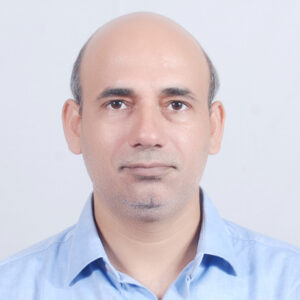 onal Translation Mission, Central Institute of Indian Languages, Mysore, India. He has a PhD in Applied Linguistics from the University of Hyderabad. Dr Tariq Khan serves as the editor of Translation Today journal. He takes interest in Psycholinguistics, Sociolinguistics, Writing Systems, Translation Studies and Intercultural Pragmatics and has published in these areas.
onal Translation Mission, Central Institute of Indian Languages, Mysore, India. He has a PhD in Applied Linguistics from the University of Hyderabad. Dr Tariq Khan serves as the editor of Translation Today journal. He takes interest in Psycholinguistics, Sociolinguistics, Writing Systems, Translation Studies and Intercultural Pragmatics and has published in these areas.
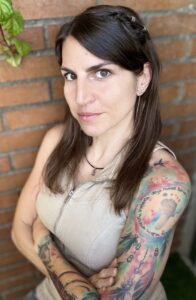 Patry Muñoz Andrés is the Director of the Translation and Localization Department at Linguava. She is also the company’s lead implementer of ISO standards. She has three Master’s Degrees from Carthage College, the University of Wisconsin-Milwaukee, the University Pontificia of Salamanca, and is currently a PhD Candidate at the University of Salamanca, writing her PhD thesis on the impact of ISO Certifications, Machine Translation (MT), and Large Language Models (LLMs) in Quality Assurance. As a former Educator and Project Manager for over a decade now, she loves improving processes to maximize efficiency and building translation teams.
Patry Muñoz Andrés is the Director of the Translation and Localization Department at Linguava. She is also the company’s lead implementer of ISO standards. She has three Master’s Degrees from Carthage College, the University of Wisconsin-Milwaukee, the University Pontificia of Salamanca, and is currently a PhD Candidate at the University of Salamanca, writing her PhD thesis on the impact of ISO Certifications, Machine Translation (MT), and Large Language Models (LLMs) in Quality Assurance. As a former Educator and Project Manager for over a decade now, she loves improving processes to maximize efficiency and building translation teams.
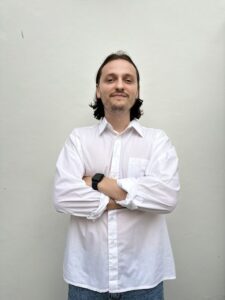 Juan Cruz is a Project Manager at Linguava, where he lead the orchestration of translation projects, vendor integration, and quality assurance. Since 2022, he have streamlined production processes and mentored new PMs, ensuring excellence in the translation and localization department.
Juan Cruz is a Project Manager at Linguava, where he lead the orchestration of translation projects, vendor integration, and quality assurance. Since 2022, he have streamlined production processes and mentored new PMs, ensuring excellence in the translation and localization department.
With a background in project coordination at ISI in the language and four years of diverse sales experience, Juan Cruz excels in creating efficient, tailored workflows.
A bilingual high school graduate, passionate about languages, cultures, and technology. Outside of work, he enjoy acting, soccer, and paddle.
An Adjunct Faculty of Translations and an Interpreter Trainer with over two decades of experience in the language industry
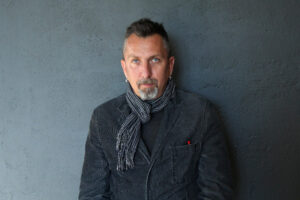
Director of the University of Latvia Livonian Institute Dr. phil. Valts Ernštreits is a Livonian-born linguist and language activist for Latvia’s indigenous Livonian language. He has been involved with many activities – both physical and digital – focused on safeguarding and empowering Livonian language and heritage for over 30 years, also serving as a mediator between NGOs, governmental institutions, and academia. He is also a member of the Global Task Force for Making a Decade of Indigenous Languages (2022–2023) and a Co-Chair of the recently established Ad-Hoc group for the Digital Equality and Domains.
Keynote: Meta/UNESCO partnership announcement for project “No Language Left Behind”
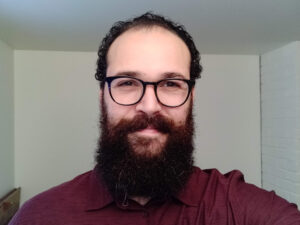
Mr. Wynne provides support, outreach, and training for Mukurtu CMS, and runs community workshops and training focused on digitization and digital curation workflows.
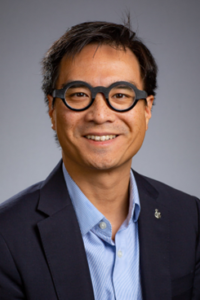
Kevin Chan is the Global Policy Campaign Strategies Director at Meta Platforms, where he is focusing on the future of the internet, including generative AI, AR/VR/MR, and the creator economy. In this role he is responsible for Meta’s global AI partnerships and programs and is the company’s representative at the World Economic Forum’s Global Collaboration Village.
A former government executive and university administrator, Kevin launched Facebook’s Canadian public policy function and spent 7 years as its Head and then Director of Policy. His work fighting white nationalists made NOW Magazine’s 2019 Year
In Review, and he was awarded a 2020-21 Harvard Technology and Democracy Fellowship for his leadership of Facebook’s Canadian Election Integrity Initiative. In 2023, UNESCO named his effort translating Facebook into Inuktitut as an initiative of “digital empowerment driving the International Decade of Indigenous Languages”.
Kevin graduated from Harvard Kennedy School, the Ivey Business School and the Royal Conservatory of Music. An Action Canada Fellow, he is the recipient of the Public Service Award of Excellence, the Queen’s Diamond Jubilee Medal, and the Meritorious Service Medal. He was elected a Fellow of the Royal Canadian Geographical Society in 2022.
Closing Address
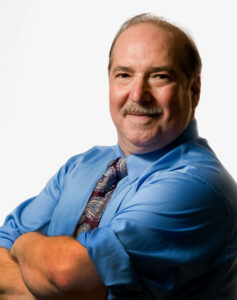
Mr. Tex Texin is an industry thought leader specializing in software globalization services. Mr. Texin has contributed to several internationalization standards and open source software and has been an advisor to several globalization non-profits. He is an advisor to Translation Commons where he has been architecting their Language Digitization Initiative, bringing the languages of indigenous communities to digital systems. Mr. Tex Texin, and his consulting company XenCraft, help numerous companies create global products and guide companies in taking business to new regional markets. Mr. Texin is a popular speaker at conferences around the world. He is the owner/author of the popular, instructional I18nGuy.com site.
